A guide to more effective, less stressful cardiology visits
Advocate for yourself, manage your emotions and get the information you need
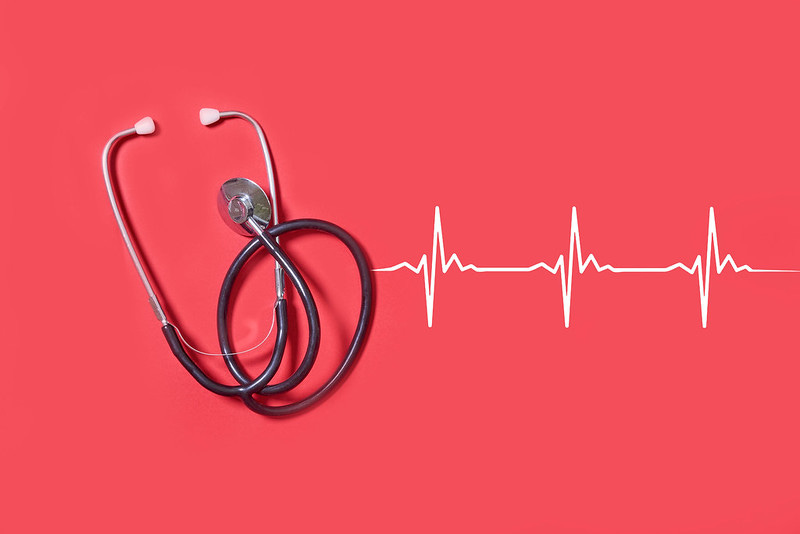
Living with congenital heart disease means undergoing a ton of regular cardiac care—not only appointments with cardiologists and other heart specialists, but also scads of tests, some of which are painful, uncomfortable or boring.
Patients might see their cardiologists twice a year, without fail. Or they might have had a 10-year lapse in care. Some want to know every single detail of their health profile (guilty!), while others just want their doctors to tell them what to do.
Regardless, these appointments can feel intimidating, filled with complicated medical concepts, poking and prodding, the reliving of traumatic experiences and the threat of getting bad news. “Often when we are staying in the hospital or attending an appointment, we feel disempowered, overwhelmed, and struggle to take things in. We might not feel able to ask even basic questions,” mental-health professionals Liza Morton and Tracy Livecchi write in their book, “Healing Hearts and Minds: A Holistic Approach to Coping Well with Congenital Heart Disease.”
While you’re probably never going to waltz into the hospital with a grin on your face, eager to jump into a hospital gown, it is possible to make these visits less stressful and more effective. Read on for advice and reminders to get the most out of your medical appointments, according to CHD healthcare providers and patients.
How do you make your appointments better? Share your wisdom in the comments.
Before the Appointment

Give yourself enough time.
When I was younger, once a year I would take the day off work and spend it at the hospital, going from test to test, all accompanied by my mom. These days, I tend to squeeze checkups and echos and MRIs in between work obligations. The result is that I’m always worried I’ll be late for something. This is not a good move.
It’s better to schedule your appointment for a time when you can focus. If you can, take the day off from work or clear other items from your calendar. Give yourself permission for this to be emotional, hard—or at least time-consuming. “A lot of times we need to process the information that we're hearing, so if you have to jump right back into your workday, it's not going to be as easy to do that,” Livecchi, who was born with transposition of the great arteries, told me.
“My medical appointments are my full-time retirement job!” said Larry Beck of San Diego, who was born with coarctation of the aorta and has had two open heart surgeries since 2015. “For new appointments, plan your route and give plenty of time to arrive without being stressed out. If it’s a new doctor, do a test drive before the appointment.”
Make a list of questions beforehand.
When you’re face-to-face with your cardiologist in that tiny, fluorescent-lit room, it’s easy to get intimidated or forget what you wanted to bring up. Before the appointment, take a few minutes to organize your thoughts, write down what you want to discuss, and prepare a list of the medications you’re taking. You might not have the time—or the energy—to cover everything, so prioritize one or two issues that you know you want to cover.
Lena Morsch, co-founder of Zipper Sisters, a Facebook group for women with CHD, likens a written list of questions to a binding contract: If you tell your doctor or nurse you have a list, you’ll be more likely to bring up what you really want to talk about. “When you're actually in the appointment, you get shy or you start dismissing yourself. I know I have,” said Morsch, who was born with several complex heart defects. “But then on the way home you're like, ‘Why didn't I bring that up?’”
Bring a buddy.
Having a friend, parent, spouse or other loved one accompany you to the appointment can soothe anxiety. A second person can also nudge you to bring up the points you want to talk about, ask the questions you don’t feel comfortable asking, or act as a kind of backup memory, particularly in cases where you need to absorb a lot of tough, new information. You can also bring someone in on FaceTime or another video-call software.
Keep stress and boredom at bay.
If you get nervous ahead of the appointment, listen to uplifting music, talk to a friend, meditate or journal. Long wait times for appointments are common (at least in my experience), so bring materials to fend off boredom: a book, a podcast, a smartphone game. Don’t forget a phone charger, a snack and an extra sweater if you think you might get cold.
During the Appointment
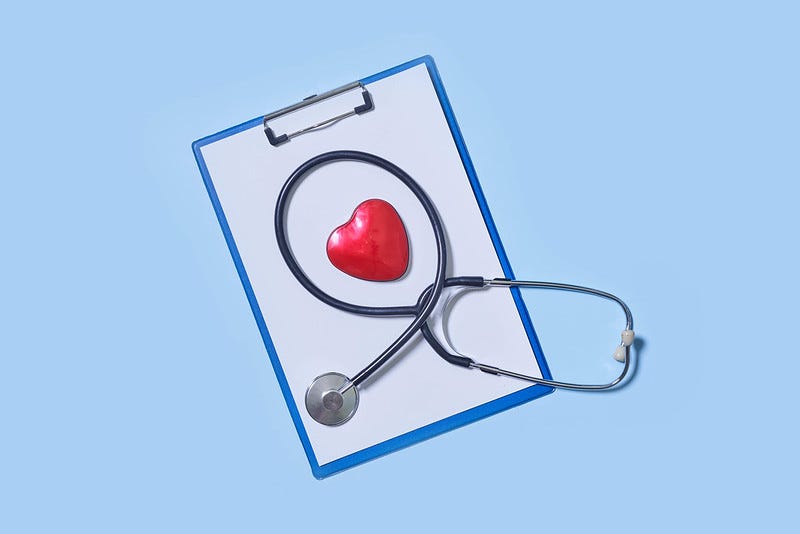
Remember: You’re an expert, too.
Healthcare professionals have years of training and experience. So do you. You are an expert in living with your heart condition and living in your body. You have the right to get involved in your care, in partnership with the professionals.
“No amount of education is a substitute for living with a condition your whole life,” said Lela White, a Salt Lake City native with tetralogy of Fallot. “The combination of a provider trusting their patient and a patient trusting their doctor, combined with the unique knowledge they each bring to appointments will guarantee better health outcomes.”
Indeed, many doctors welcome patients who get involved. Fred Wu, an adult congenital cardiologist at Boston Children’s Hospital and Brigham and Women’s Hospital, said his team encourages their patients to be active participants in their care, rather than merely taking the doctor’s orders.
Feel empowered to understand your condition, pay attention to your body, ask questions and evaluate treatments. If something doesn’t sound right or feel right, speak up. Informed patients have better outcomes, as the saying goes.
“You are an essential partner in your healthcare team, and it is vital that you are taken seriously, listened to, and validated by your healthcare providers. As such, it is important that you have a cardiology team that you trust and feel you can partner with,” Morton and Livecchi write.
Ask questions.
You won’t offend your cardiologist, and you won’t look stupid if you ask questions. “Even if you think you know the answer, extra clarification or details are never a bad thing,” said Jake Chico of Media, Pa., who was born with heterotaxy.
Catherine R. Weinberg, the adult congenital heart disease director at Northwell Health in New York, said that she loves it when her patients ask questions, in part because it can improve their care. For example, she said, if you know why you’re taking a certain medication, you might be more likely to stick with it. “If you understand what's going on with your body, you'll take care of yourself better, and you'll have a better outcome, and we'll work together better,” Weinberg said.
Don’t be afraid to ask follow-up questions if you didn’t catch something the first time or need more information. Ask the doctor to speak more slowly or draw a diagram, Livecchi suggested.
I love how plainly Morton and Livecchi put it in their book: “If you do not understand what is happening to you, then ask. If you are not satisfied with the answer, then ask to speak to someone else. Be polite and reasonable but assertive (it is easy to become frustrated and angry, but this won’t get you the reaction that you want).”
Take notes.
Sometimes visits go by quickly, and a lot of information comes at you. Document the appointment. It’s not weird or intrusive, and it might help you remember or understand concepts better later.
You can use pen and paper or a note-taking app on your phone. After the appointment, take five or 10 minutes to write down what you remember and organize your notes so you can understand them later. (I have a running document in my iPhone’s Notes app with dated notes from past appointments. Having it all in one place is very helpful.) If you’ve brought a buddy, you can also designate this person as the note-taker.
Another option: Ask your cardiologist to draw a diagram or write down necessary material, such as a list of your medications and what they’re for, Wu said. This can be especially helpful if the conversation moves too quickly to take notes.
Wu said he will often give patients a hard copy of their ECG (the version he needs is stored electronically). You can bring that to the ER or other appointments to show medical staff your baseline, which might look different from most people’s.
Lastly, some cardiologists are comfortable with you recording the appointment—but ask first.
Ask for what you need.
I hate needles—not so much the pain, but the thought of a foreign object sticking out of my body. I can’t even look at someone getting an injection in a movie or a photograph. So every time I get an IV, I ask the nurse to wrap it in gauze, just so I don’t have to see it. This is weird, sure, but it’s helpful for me.
The moral of the story? If there is something that will make the experience easier for you, speak up. It might not always be possible to accommodate, but it doesn’t hurt to ask.
When Livecchi gets blood work done, she said she sometimes asks the technician to put a warm compress on beforehand to make the blood draw easier. Occasionally she asks for a different technician if the first one is having trouble. She also asks nurses to turn down or shut off the volume on heart monitors, which can be triggering.
Say no (within reason).
If you had cardiac care as a child, you likely weren’t able to ask for what you need or even to consent to treatments or other aspects of your care. Today, you are an adult, and you are allowed to say no—or at least to ask why and if certain things are necessary. Ultimately, you get to make the decisions, not your parents and not your providers.
For example, sometimes it isn’t necessary to wear a hospital gown, even if a nurse asks you to change into one. “I know when I'm wearing that hospital gown and my tushy’s hanging out, and I'm shivering on the table, I feel pretty powerless,” Livecchi said. “You can say, ‘Is this really necessary? I can pull my shirt up. Do I really need to put on a gown?’”
Likewise, if a nurse asks me to step on a scale, I calmly say, “No thanks.” I’ve rarely gotten pushback on this. Not every nurse will have this reaction, of course. If you’re getting medication that needs a specific dose or you have a condition where your weight is essential information, you might have to get weighed. And if you are in a bigger body or have another marginalized identity, you might find it more difficult to decline. You still have a right to say no. (Ragen Chastain broke this down in her newsletter, Weight and Healthcare. This thread is also useful.)
Be polite but firm. You don’t need to go into a long explanation.
You can also decide whether you will undergo specific tests, treatments and medications, but Weinberg advised learning about all the options first and keeping an open mind. “Make sure your ‘no’ is an informed ‘no,’” she said.
Lastly, unless it’s an emergency, you probably don’t have to decide on a course of action right away. Discuss it with your loved ones, do your own research, and/or have a virtual follow-up with your provider to talk more about the options before you decide.
After the Appointment
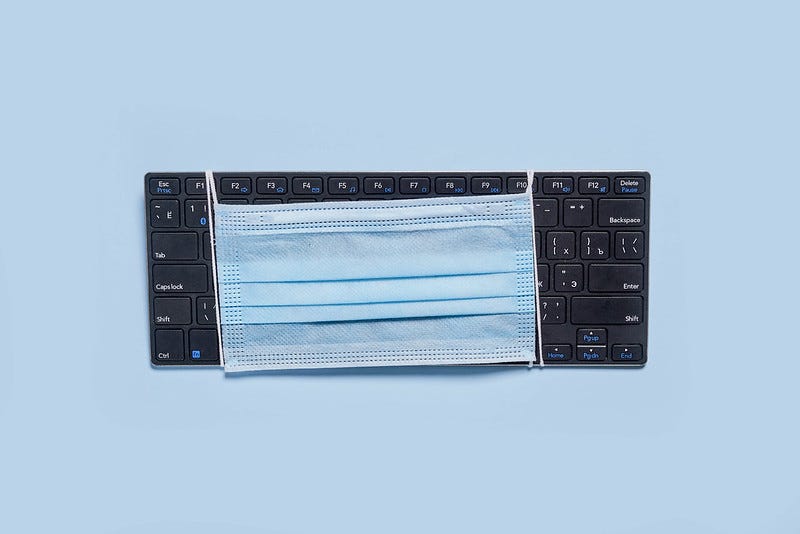
Keep the conversation going.
Let’s say you asked questions and jotted down notes, but you still need answers.
“If you forget to ask something, don't beat yourself up,” said David Novich of Roslyn Heights, N.Y., who has aortic disease. “I'm always thinking of questions hours or days after an appointment. These are ongoing relationships with your medical professionals and you can continue to ask questions whenever they pop up.”
Ask your cardiologist or other medical staff how you can reach them if you have additional questions after the appointment. Sometimes you can get the email or phone number of your doctor or a physician’s assistant. You can also schedule another appointment.
If you leave a message or send an email and don’t hear back, don’t take it personally. Cardiology teams are busy. Don’t be afraid to follow up. Some of the people Livecchi works with sometimes say things like, “‘Oh, I don't know, I already emailed two weeks ago.’ No, it's okay,” she said. “Do it again. Pick up the phone and call if you need to get your questions answered.”
Get a copy of your clinic note.
You are entitled to see your clinic note, which a cardiologist will typically write after every visit. While not every physician goes into the same level of detail or history, Wu said his clinic notes include a detailed description of patients’ cardiac anatomy, procedures they’ve had done, coexisting conditions and other noteworthy items, such as whether patients need their blood pressure taken in a certain arm. “Especially for a new patient, we actually put a lot of work into the note” so that other doctors, including in the emergency room, can consult it, he said. “Basically, we want our note to be a good, single source of information where the other physician will get everything they need.”
Take advantage of patient portals.
Most hospitals these days have them. Not all of them are intuitive—OK, some of them are downright clunky—but they provide a wealth of information, from test results to doctor’s notes, as well as a way to communicate securely with your medical team. They also create an electronic paper trail, in case you later need to verify dates, symptoms or other information. If the portals feel intimidating, ask someone at your cardiologist’s office to show you how to use it, Livecchi suggested.
Get a second opinion.
If you haven’t gotten the information you need or simply want another perspective, ask for a second opinion. If a doctor can’t answer your question, there might be a specialist or someone with more experience in a particular issue who can. You likely won’t hurt your cardiologist’s feelings, but regardless, it’s your right.
Be smart about online research.
At some point, everyone is going to Google. Obviously, a lot of bad information is floating out there, particularly on social media. Still, much of the reputable heart-related information out there is based on people with acquired heart disease. Even the material targeted toward adults with congenital heart disease might not be applicable to individual patients, doctors said.
“People have to realize that every patient is different in congenital heart disease, that we can't apply every little bit of data that's out there to you,” Weinberg said. “A lot of what's out there is based on the extremes, so either the really healthy people or the really sick people. You may be in the middle of that.”
“It's also critical to understand that what you read online was written in the past, and medicine is constantly evolving,” Novich said. “Also, online articles are written to inform consumers and err on the side of making something sound more serious.”
In certain situations, Wu tells his patients not to Google. For example, patients who’ve had the Fontan operation can get cirrhosis, or scarring of the liver. “You're going to hear that term used about your liver, and if you look up cirrhosis, it's going to be really scary stuff that quite honestly doesn't apply, but that doesn't mean that you shouldn't do any research,” Wu said.
The best method: Do your own research and then consult your provider about whether it applies to you.
Manage Your Emotions
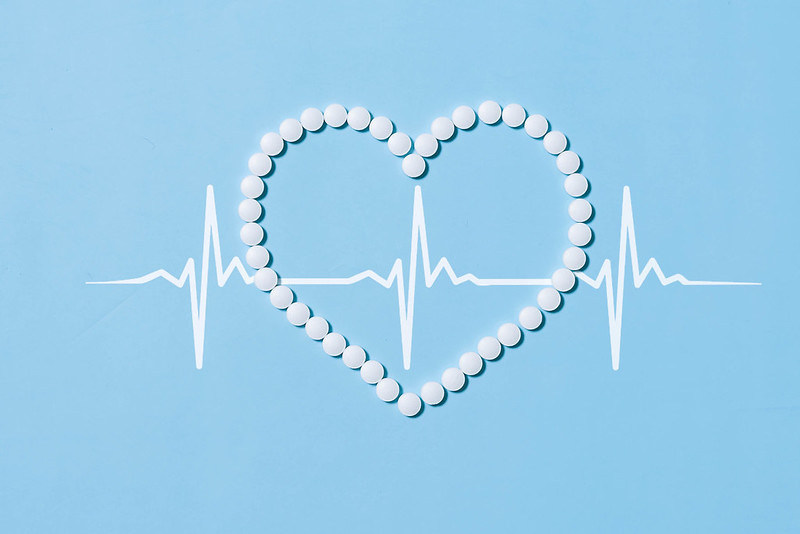
Help your anxiety.
No matter what I tell myself before an appointment, my heart rate and blood pressure shoot up the second I step into the hospital where I see my cardiology team.
Some techniques that might help relieve anxiety include listening to soothing music, bringing a loved one to appointments, meditating or journaling. Deep breathing exercises before and even during the appointment might also help—you can do deep abdominal breaths without anyone noticing, Livecchi said. You can also let your team know if these appointments are difficult for you, she said.
And remember, past results don't guarantee future performance. “Just because you may have had a scary experience or some trauma in the past, it doesn't necessarily mean that your upcoming visit is going to be the same,” Livecchi said.
After the appointment, do something special or relaxing, such as going out for a nice meal, sinking into a bath, binge-watching a fun show or reaching out to a loved one. Allow yourself to feel what you feel. “It's important to have that time afterwards to reflect on [the appointment] and let it sink in and get support,” Livecchi said.
Consider medication.
Anti-anxiety medication is also an option, particularly before more invasive tests, such as MRIs. Be careful of side effects: Meds might impact your ability to drive or to process what’s happening during the appointment. Note that not all cardiologists can fill these prescriptions, so you might need to ask your primary care provider, in consultation with your heart doctor.
Get peer support.
If you’re feeling anxious or upset, don’t hold it in. Talk to other people who know what you’re going through, such as an online community. (A newsletter perhaps?) “Go somewhere where you'll actually be listened to and validated,” Morsch said.
Find a Cardiologist Who Gets You
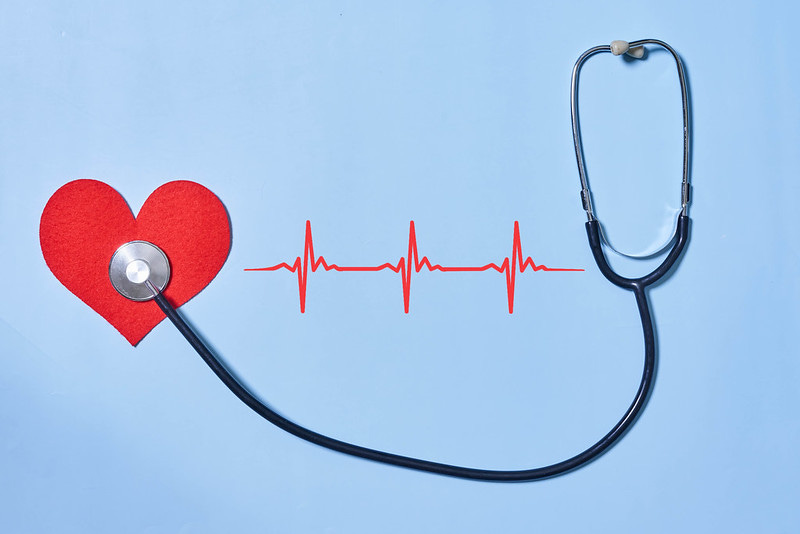
A good rapport with your doctor is vital. You should find it easy to communicate, ask questions and be honest. That kind of relationship leads to better care and potentially better outcomes. “Our goals are the same,” Weinberg said, referring to patients and doctors. “Our goal is to make you feel better and do better in the long run.” Knowing your doctor has your back also makes it easier when difficult times come up.
If you don’t have this kind of relationship, consider finding another cardiologist. “Unfortunately, not every physician and patient is really going to mesh from a style or personality standpoint,” Wu said. “I don't think any physicians will ever take it personally or get upset or refuse to let you see somebody else.”
What if you can’t find another cardiologist?
While you should never feel obligated to stick with a doctor, it might not be simple to find another specialist in your area who is qualified to care for your heart, given the dearth of adult congenital cardiologists. What then?
Try having a conversation with your doctor at your next appointment. “People just have to feel comfortable talking to the provider and saying, ‘Hey, the last time I saw you, the interaction wasn't ideal for me and this is why,’” Wu said.
Another option is to work with a local cardiologist but visit a regional center every year or two, Wu said.
Lastly, try and understand that doctors are human too and, as difficult as it might be, extend compassion. Who knows what situation they encountered with the patients they saw before you or how many frustrating phone calls they’ve had with an insurance company that day. “Sometimes doctors have bad days too,” Weinberg said. “Give them a second chance because maybe it was just an off day.”
Work With Medical Staff

Many patients have warm, trusting and productive relationships with their cardiologists, often over the course of years or even decades. And yet, in most appointment settings, you will deal with staff—fellows, nurses, medical technicians—who might know very little about you, your condition or your health history. (Personally, whether I have a good or bad experience can come down to whether the nurse doing my ECG treats me like a person or a piece of meat.)
You can improve these interactions.
Speak up, even if you’re shy.
Be open with medical staff about your past experiences or what you need. Many appreciate the openness because it will make their jobs easier, Weinberg said. For example, if you know you’re a “hard stick,” meaning it’s difficult to get a blood draw, you can tell nurses which vein is the best one to try.
Also, tell medical staff if particular aspects of care are difficult for you or particularly helpful, such as having a family member at appointments. You can also ask them to write this in your medical chart. “If you have had difficult medical experiences in the past that make your care more challenging or evoke strong distressing feelings, then you can inform your healthcare team about this,” Morton and Livecchi write.
Morsch suggests coming up with a simple description of what happened to your heart in case you need to tell medical personnel (and make your partner, sibling or friend memorize it!).
Know this about fellows.
Seeing a fellow, or a doctor-in-training, before your cardiologist can be disorienting, frustrating and stressful—you go over your whole medical history with someone you’ve never met and likely won’t see again.
And yet, it’s essential to train the next generation of cardiologists. Try to have an open mind. For some fellows, meeting adults with CHD convinces them to go into the field. (And we need all the specialists we can get!) For others, the experience will help them in other fields of medicine—the next time they see a patient with complex cardiac anatomy, they might make a smarter referral because of the time they spent with the CHD population, Weinberg said.
Know that you can always save more sensitive or complicated topics to discuss directly with your cardiologist. If it’s a really stressful time, and you don’t want to see a fellow, ask to skip that part of the appointment.
Other Resources
ACHA Patient Resource Directory. This searchable database from the Adult Congenital Heart Association is full of resources to get access to specialized care, including information on insurance and mental health.
ACHA Personal Health Passport. Another good resource from the ACHA. You can fill out this document detailing your conditions, medications and other health considerations to take to appointments or the ER (or just to have a handy spot to store all this information). There are even spots to draw a diagram of your cardiac anatomy and to staple an ECG.
How to Make the Most of Your Medical Appointments. In this episode of “The Rest Room,” a podcast and newsletter about living well with chronic illness, host Natasha Lipman interviews Hannah Barham-Brown, a chronically ill doctor and disability activist, about how to get the best out of a brief visit with your doctor, among other things. Barham-Brown has been on both sides of the white coat and has a lot of wisdom to contribute.
Healing Hearts and Minds: A Holistic Approach to Coping Well with Congenital Heart Disease. Tracy Livecchi and Liza Morton’s book, which I’ve quoted from above, has whole sections on dealing with medical procedures, managing uncomfortable feelings and learning assertive communication. A must-read for anyone with a congenital heart condition, plus families and providers, too.
What other tips, tricks and reminders do you have? What are your go-to resources for patients? Leave a comment to share with the community.




I have learned over the last year and a half that making a list of questions before each specialist visit was the best way to remember what I wanted to cover. I keep track of all my appointments/questions in what I call my “Heart Notebook.” Tracy and Liza’s book has been a great resource too.
I look at my Echo results and keep track of it. I also do not allow my heart practice to have anyone other than my MD cardiologist see me. They didn’t catch my condition when it should’ve been caught so I had already switched to a valve specialist. Now I’m one 1/2 years post surgery and I ask plenty of questions and call or email if I think of more later. I do write down my questions.